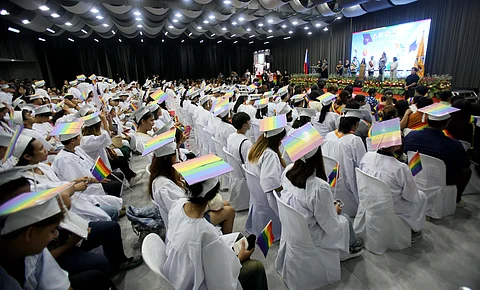
- NEWS
- the EDIT
- COMMENTARY
- BUSINESS
- LIFE
- SHOW
- ACTION
- GLOBAL GOALS
- SNAPS
- DYARYO TIRADA
- MORE

Quezon City hosted the largest Pride festival in the Philippines — and Southeast Asia — on Saturday, transforming LoveLaban 3 into not just a celebration, but a stand: for inclusivity, for expression, and for the environment.
Co-organized by the Quezon City government, Pride PH and the University of the Philippines Diliman, this year’s Pride Fest leaned heavily into sustainability, breaking from past norms of waste-heavy festivities.
Organizers redirected the celebration’s footprint, steering it away from single-use plastics and waste, while pushing vendors and participants toward a circular economy.
“Climate change affects the lives of our citizens, especially those in marginalized sectors, and it exacerbates existing inequalities in our communities. We cannot end inequality without addressing the climate crisis. Through our Pride celebrations, we aim to empower LGBTQIA+ communities to become changemakers and to be at the forefront of our shared fight for equality, inclusivity, and climate justice,” Quezon City Mayor Joy Belmonte said.
The city laid out six climate actions underpinning this year’s Pride: waste reduction, low-carbon mobility and water conservation leading the charge.
Single-use plastics — including bags and water bottles — were banned outright. Vendors were encouraged to switch to reusable and biodegradable packaging.
Digital platforms handled event registration, minimizing paper waste — an approach tested successfully at the recent Pride Run.
Participants were reminded to respect the natural landscape of the UP Diliman campus — its trees, open spaces and flowers — while refilling stations dotted the grounds to provide clean drinking water. Tumblers were encouraged. No throwaways.
Vehicle-free zones were mapped out across the campus to cut pollution and improve air quality. Walkable stretches doubled as safe spaces — areas carved out for community, solidarity and expression.
Waste management also came into focus. Trash bins were placed strategically throughout the venue to aid in recovery of recyclables and encourage responsible segregation.
